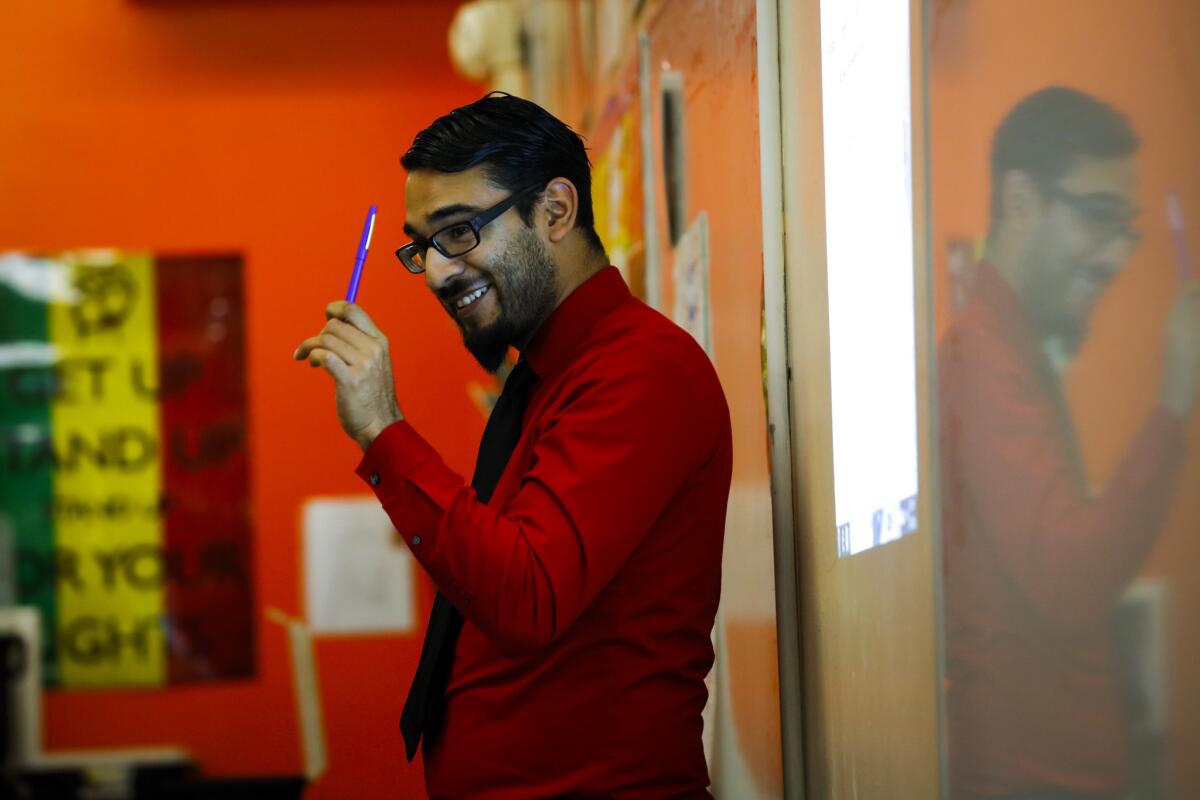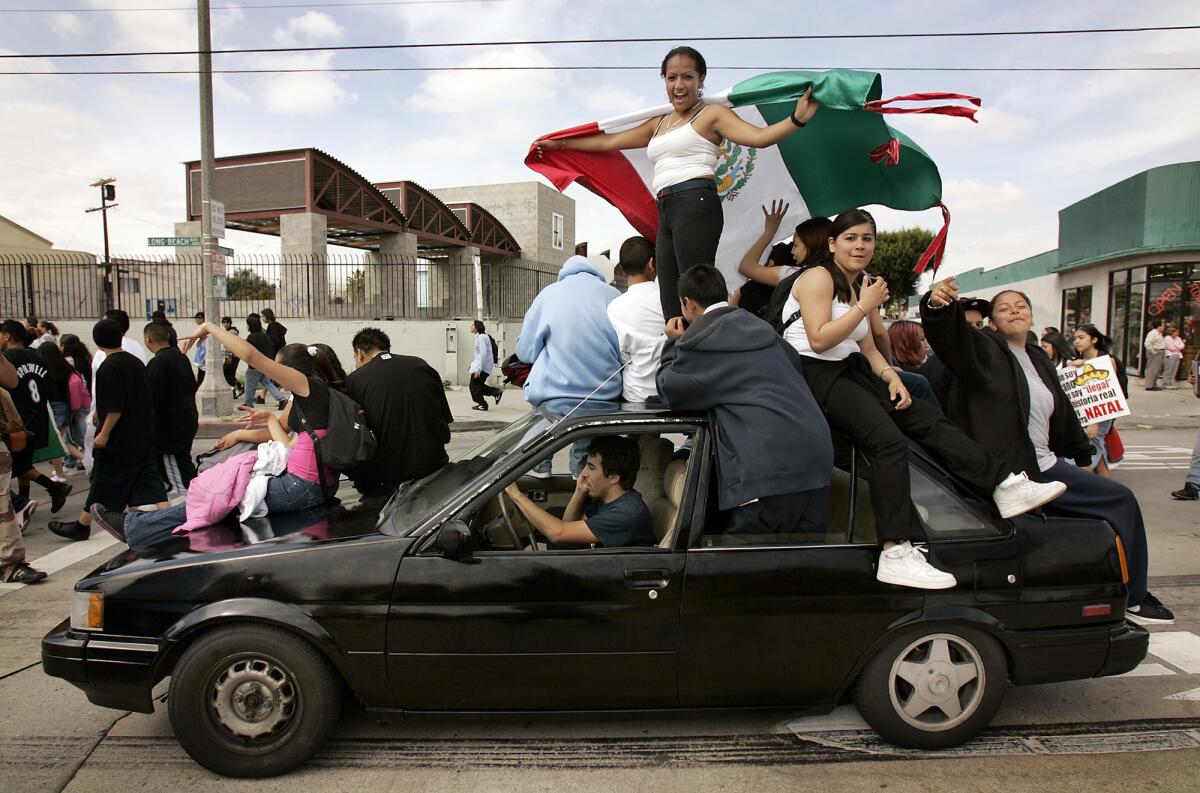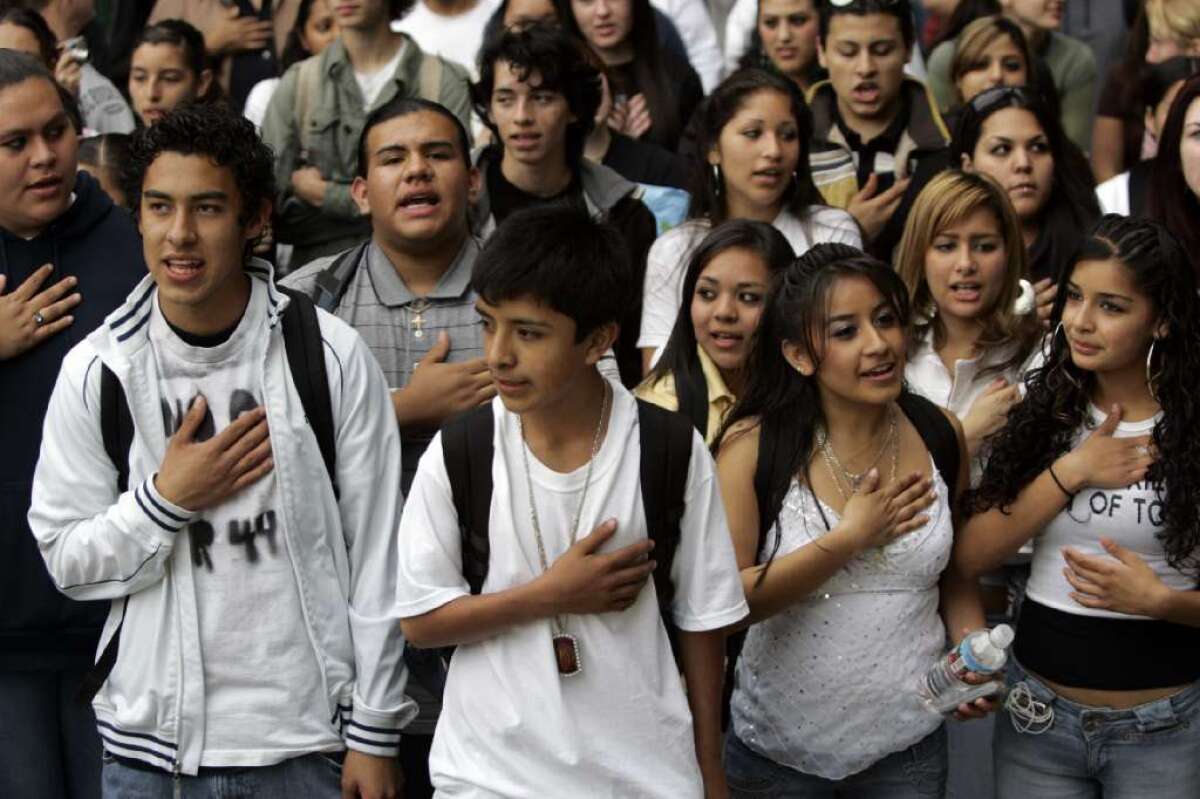He took part in the student walkouts a decade ago. Now he teaches young people to take a stand
- Share via
A decade ago, thousands of California high school students walked out of class to stand up for immigrant rights in one of the first mass protests propelled by social media.
Roberto Rodriguez, now a 28-year-old teacher and father, says he tries to instill the passion he felt that day in his students at a Compton charter high school.
But it’s a battle.
Read their stories: Military veterans, NYC mayoral aide and more »

When Rodriguez tells his students it’s their turn to make a stand for the issues that matter to them, they shoot back, “Mister, it’s a different time.”
Even though, through social media, they’re connected in so many ways, they seem disengaged from politics.
When Rodriguez was around their age, years before Black Lives Matter or the Arab Spring demonstrated the amplifying power of social media, he and his peers used MySpace to mobilize against a federal law that would have criminalized immigrants in the country illegally.

In March 2006, from San Diego to Northern California, students put down their books, jumped fences and pressured security guards to open gates. Then they marched. Southern California student protesters numbered about 40,000, much larger than the Chicano student “blowouts” of 1968 and anything since then.
It was a pivotal moment for Rodriguez and many others, who discovered they could use their voices to make change. It pushed him to believe he could make the biggest difference teaching those with backgrounds similar to his own.
“It changed the way I saw the ability for my community to organize,” Rodriguez said. “We knew there was a law ... that was going to impact our parents and attack our community, and we were not going to take it.”
The bill never became law. In the aftermath of their protests, the Dreamer movement for undocumented youths emerged.
Rodriguez is not alone in feeling frustrated with the dropoff in momentum.

After all, while the students who walked out were a small part of marches in which millions participated nationwide, they had so much potential: They were mostly citizens, young and at the forefront of the digital communication revolution.
On March 27, 2006, when Rodriguez led hundreds of students from schools in Watts on a march toward City Hall, they shouted, “Hoy marchamos, mañana votamos,” or “Today we march, tomorrow we vote.”
But now tomorrow has arrived, and some of his peers clearly aren’t voting. In national elections since 2006, Latino voter turnout has decreased. The teens who left class may be part of the country’s fastest growing voting bloc, but the participation of millennials as a group has lagged. Meanwhile, deportations continue and federal immigration reform appears further off than in 2006.
To mark the anniversary of the protests, The Times connected with scores of millennials who walked out from more than 50 schools across Southern California.
Interactive
Follow the stories of 25 students who walked out a decade ago. Read more »

They include military veterans, educators and policy aides for the mayor of New York and the San Jose City Council.
For the self-selected sample that responded to our survey — most of them discovering it, not coincidentally, via social media — the walkouts were a seminal moment that shaped their careers and passions.
“They understand politics in a different way because of the marches,” said Louis DeSipio, a professor of political science at University of California, Irvine. “Immigrants are a central part of the story, and their rights are a central part of the story.”
ALSO
L.A. will need to create a 'housing machine' as part of homeless bond measure, official says
8 things to know about Senate hopeful Loretta Sanchez's 20-year political career
Oakland police scandal raises fears about the city's fight against sex trafficking
Sign up for Essential California
The most important California stories and recommendations in your inbox every morning.
You may occasionally receive promotional content from the Los Angeles Times.








